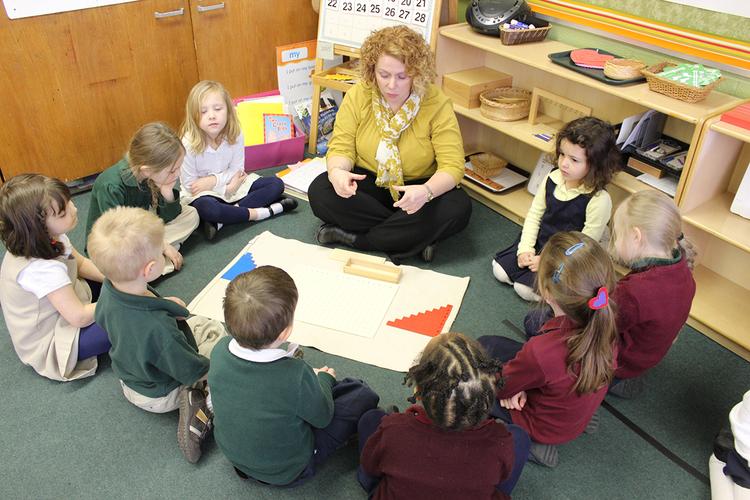What is Montessori?

Montessori Education is an educational approach developed by Dr. Maria Montessori, an Italian physician and educator. It is based on the belief that children are naturally curious, capable, and eager to learn. Montessori education emphasizes independence, freedom within limits, and respect for the child’s individual development.
In a Montessori classroom, the environment is carefully prepared to foster the child’s natural desire to explore and learn. It is filled with hands-on materials and activities that are designed to promote sensory exploration, cognitive development, and the acquisition of practical life skills. The materials are self-correcting, allowing children to learn through trial and error and develop a sense of mastery and self-confidence.
One of the fundamental principles of Montessori education is the concept of “freedom within limits.” Children are given the freedom to choose their activities and work at their own pace. They are encouraged to follow their interests and engage in deep, focused concentration. However, this freedom is balanced with clear guidelines and boundaries to ensure a respectful and harmonious learning environment.
Montessori classrooms typically have mixed-age groups, allowing younger children to learn from older peers and older children to reinforce their knowledge by helping younger ones. This fosters a sense of community, cooperation, and social development. Teachers in Montessori education, known as guides or facilitators, observe the children closely and provide individualized guidance and support based on their needs and interests.
Montessori education goes beyond academic learning and places equal emphasis on the development of character, social skills, and emotional intelligence. It aims to nurture the whole child and promote qualities such as independence, self-discipline, empathy, and a love for learning.
Montessori education is not limited to a specific age group or educational level. It is implemented in schools around the world, ranging from infant and toddler programs to primary and elementary levels. The Montessori approach has also influenced various aspects of education, including the design of learning environments, the role of the teacher, and the importance of hands-on, experiential learning.
Overall, Montessori education offers a child-centered approach that respects each child’s unique abilities and encourages them to become self-motivated, confident, and lifelong learners. It aims to foster a love for learning, independence, and a deep understanding of the world, preparing children for success in both academic and personal aspects of their lives.
